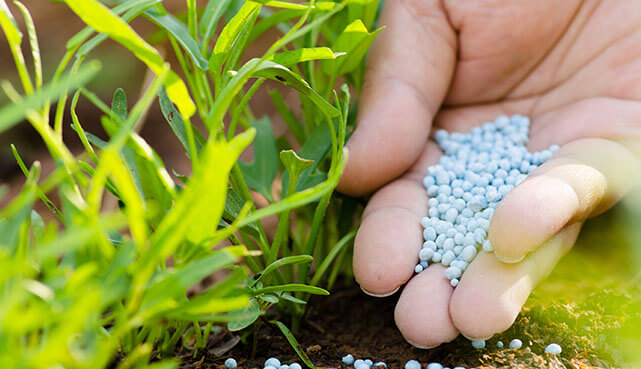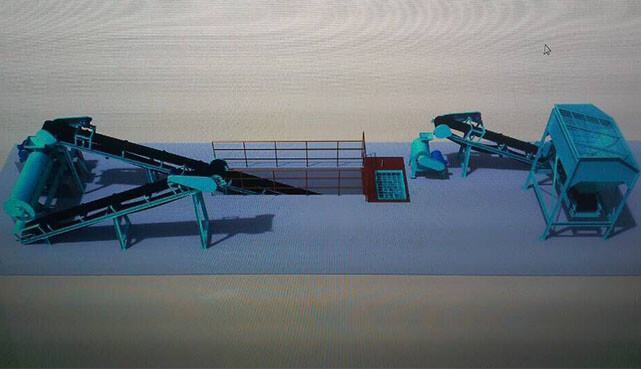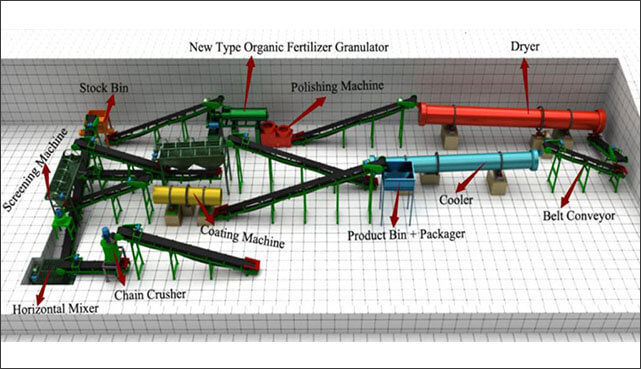What Exactly are the Functions of Organic Fertilizer in Agriculture?
Because of great amount of chemical fertilizer being applied in a fairly long period, the organic substances content in soil reduces without the neutralization of organic fertilizer. The successive application of inorganic fertilizer, can only lead to the mineralization and exhaustion of organic material, the content of which in soil decreasing steadily. The decomposition rate of free organic matter is significantly higher than that of recombinant organic matter.
1.soil properties getting worse.
2.bio-activity declining.
3.causing crop failure, severe plant disease and insect pest.
4.low utilization rates, polluting the ecological environment.
All the signs indicate that crop growth cannot live without organic fertilizer. But how could we get organic fertilizer? We can use organic fertilizer granulator to produce organic fertilizer. Livestock and poultry manure, crop straws, sludge, grass carbon and etc are the main materials of organic fertilizer production.
Organic fertilizer processing production and technological process includes the selection of the raw material (livestock and poultry manure, crop straws, sludge, grass carbon and etc)→fermentation treatment→burden mixing→granulation→cooling and screening→measuring and cutting→product storage.
Raw materials for organic fertilizer includes:
1.Animal manure: chicken manure, cow dung, sheep manure, horse dung, rabbit dung, etc.
2.Household garbage: kitchen waste.
3.Industrial waste: vinasse, vinegar residue, cassava dregs, sugar residue, and furfural residue, etc.
4.Agricultural residues: crop straws, bean pulp, cottonseed meal, etc.
5.Municipal sludge: river sludge, sewage sludge.
These organic substances can be as our organic fertilizer raw materials. Organic fertilizer, being friendly to the environment, has more nutrients and good effect on crops.
What Kind of Fertilizer cannot be Used at the Same Time?
1.Farmyard manure cannot be mixed with alkaline fertilizer, such as plant ash, lime nitrogen, lime, calcium magnesium phosphate fertilizer etc. That is because the chief ingredient in human and animal manure is nitrogen. The farmyard manure will be neutralized and failure if mixed with strong alkaline fertilizer.
2. Superphosphate cannot be mixed with alkaline fertilizer, such as plant ash, lime nitrogen etc. Otherwise, it will reduce the effectiveness of phosphorus. Lowly water-soluble phosphates, such as ground phosphate rock, bone meal etc., also cannot be mixed with plant ash, and lime nitrogen, as the lowly water-soluble phosphate will be more difficult to dissolve. Crop is unable to absorb and utilize.
3.The fused calcium-magnesium phosphate cannot be mixed with ammonium fertilizer. If alkaline fertilizers are mixed with ammonium fertilizers, such as ammonium bicarbonate, ammonium sulfate, ammonium nitrate, and ammonium chloride etc., the fertilizer efficiency will be decreased because of the increasing volatility of ammonia.
Effect of Organic Fertilizer
Organic fertilizer is made of organic matters, while chemical fertilizers are inorganic materials being made synthetically. The chemical fertilizer varies greatly in features with organic fertilizer: on the one hand, nutrient elements contained in chemical fertilizer are single or few, but with high nutrient supply and profitable effect; on the other hand, chemical fertilizer isn’t very effective in the amelioration of soils, even with the side effect of ruining the soil. However, organic fertilizer contains various and general nutrients, and can increase physicochemical property of soil.
1. Improving the absorption and utilization of crop to nutrient, increasing organic matter content, which help to improve soil, reduce biological soil crust, enrich and loosen soil, and bring the crops forward.
2. Reducing losses from diseases, pests, and spoilage: through high temperature fermentation, diverse beneficial microbial bacteria can reduce the occurrence probability of pests and diseases, so as to achieve the effect of increasing production and income.
3. Improving the resistance of crops to disease, and promoting the rapid growth of crops.
Based on aerobic fermentation technology, organic fertilizer, which is made of mould dregs and organic matters and treated innocuously, has the following 5 advantages when compared with livestock manure organic fertilizer:
1.High macro-elements and trace elements content: 2-4 times higher than dry hen manure and farmyard manure.
2. Without feed additives, especially various heavy metals.
3. Deriving from organic plants, and belonging to plant fertilizer.
4. Convenient for storage, transportation, and application.
5. Odorless and toxin-free. The product can improve crop quality, increase physicochemical property and crumb structure of soil, and better soil fertility.
It is a highly effective and lasting pollution-free organic fertilizer, which is the first choice in green food production.
Refined organic fertilizer besides to have three basic nutrients, such as nitrogen, phosphorus, potassium, it also has other various medium trace elements, such as calcium, magnesium, sulfur, copper, zinc, iron, manganese, boron, molybdenum and etc. Amino acid>7%, organic material≥30%,humic acid≥8%, nitrogen phosphorus and potassium≥5%,the total quantities of calcium magnesium and sulfur≥8%, microelement such as iron, manganese, boron, molybdenum and etc 0.3-1%;ph value 6-8, moisture<10%.
The practical scope of organic fertilizer is wide, field crops such as rice, corn, peanuts, wheat, and etc; commercial crop soybean, cotton, sesame, sugarcane, tea, tobaccos, etc; melon and fruit such as orange, navel orange, strawberry, longan, pineapple, citrus, banana, loquat, kiwi fruit, litchi, apple, pear, grapes, etc; flowers and plants, landscape plants, traditional Chinese medicinal materials etc, all of the mentioned varieties can be applied.







